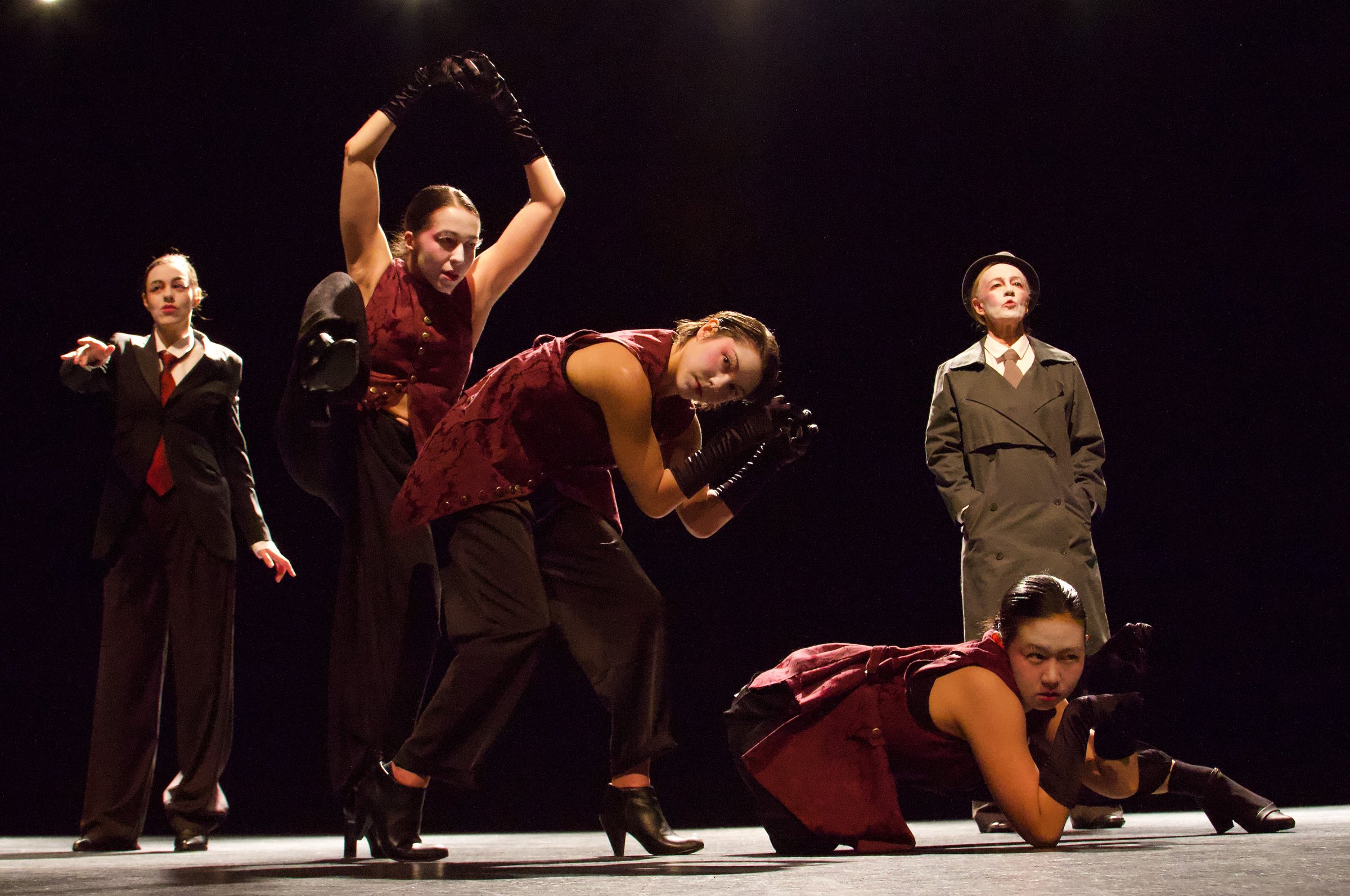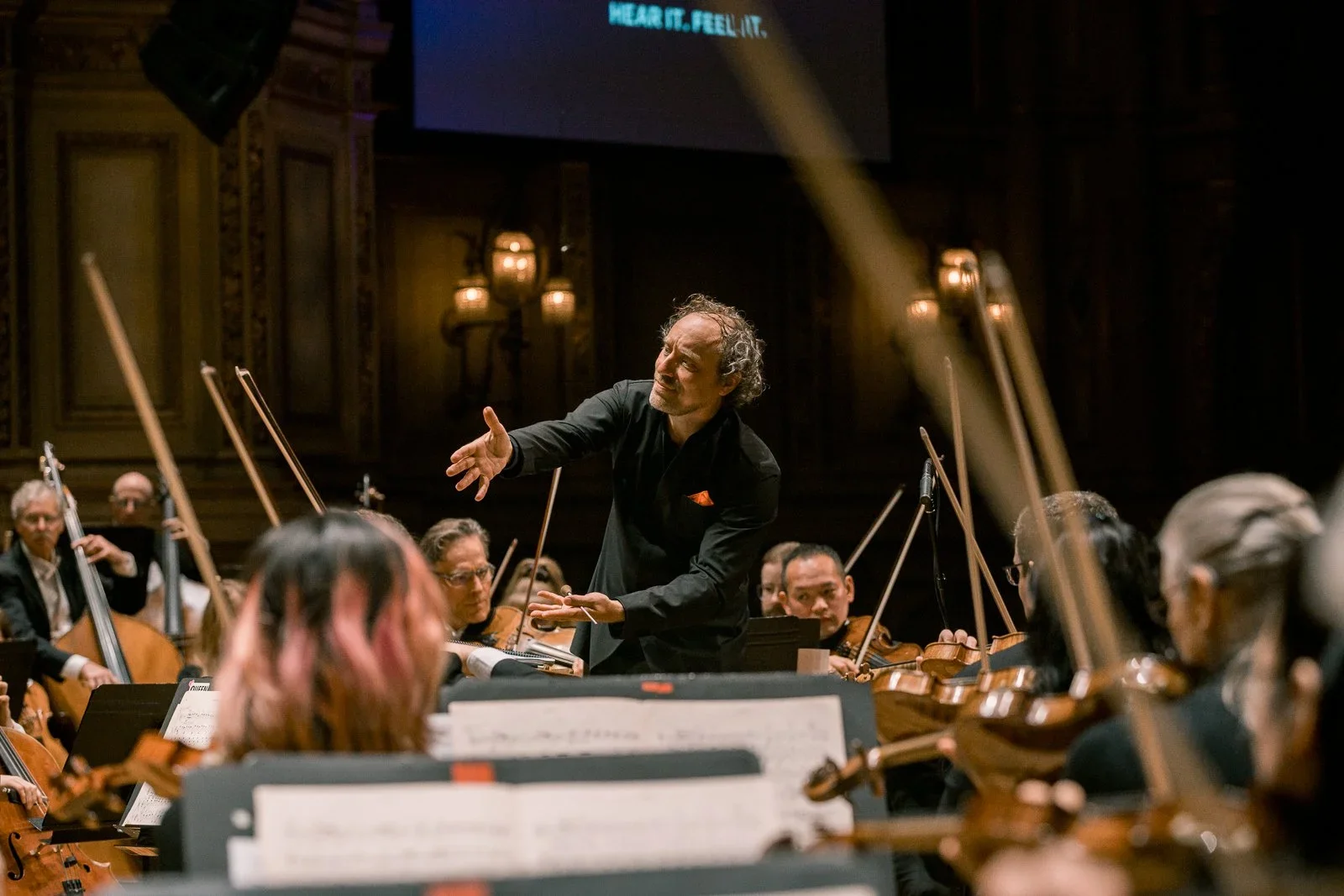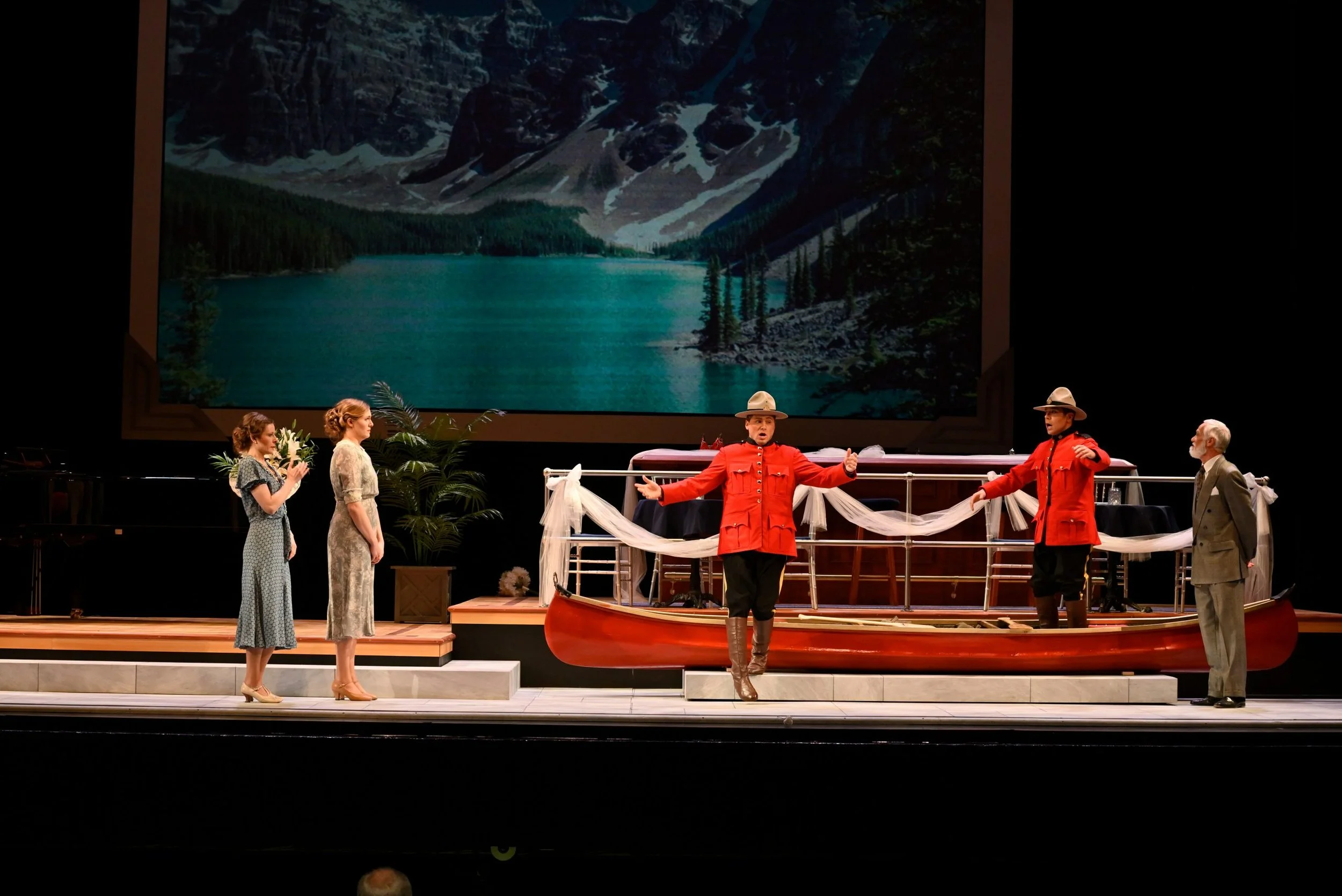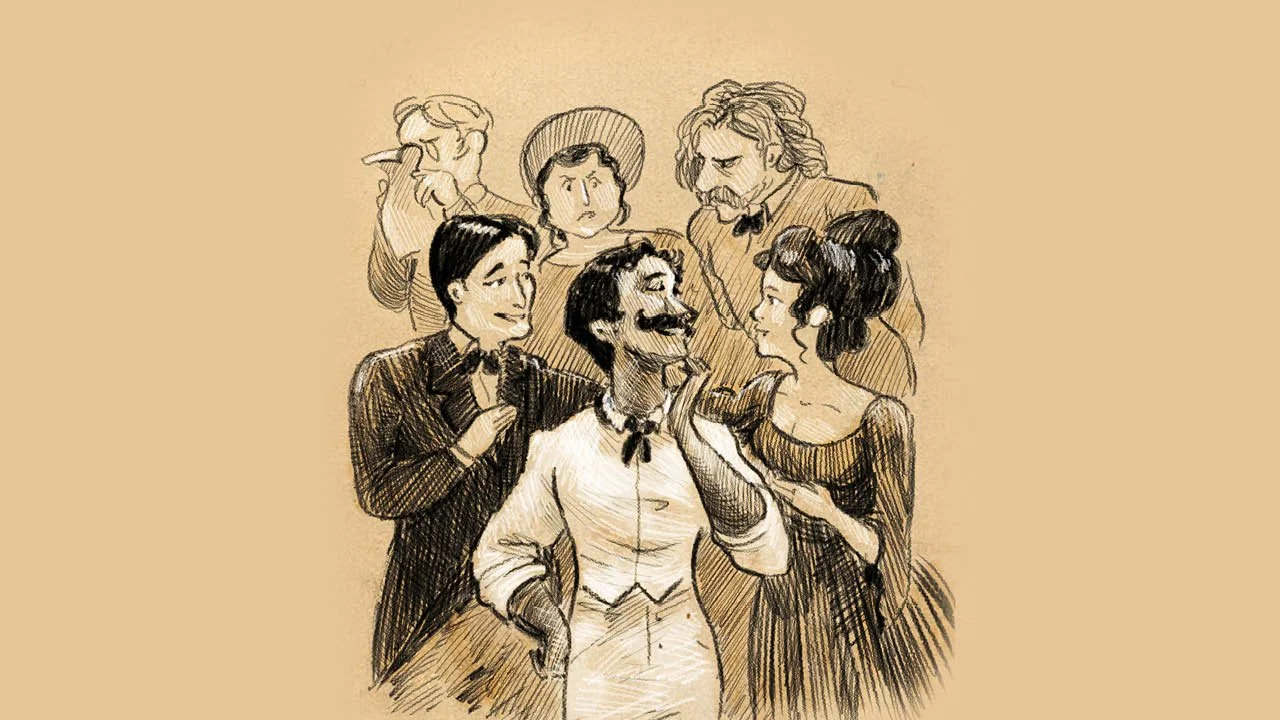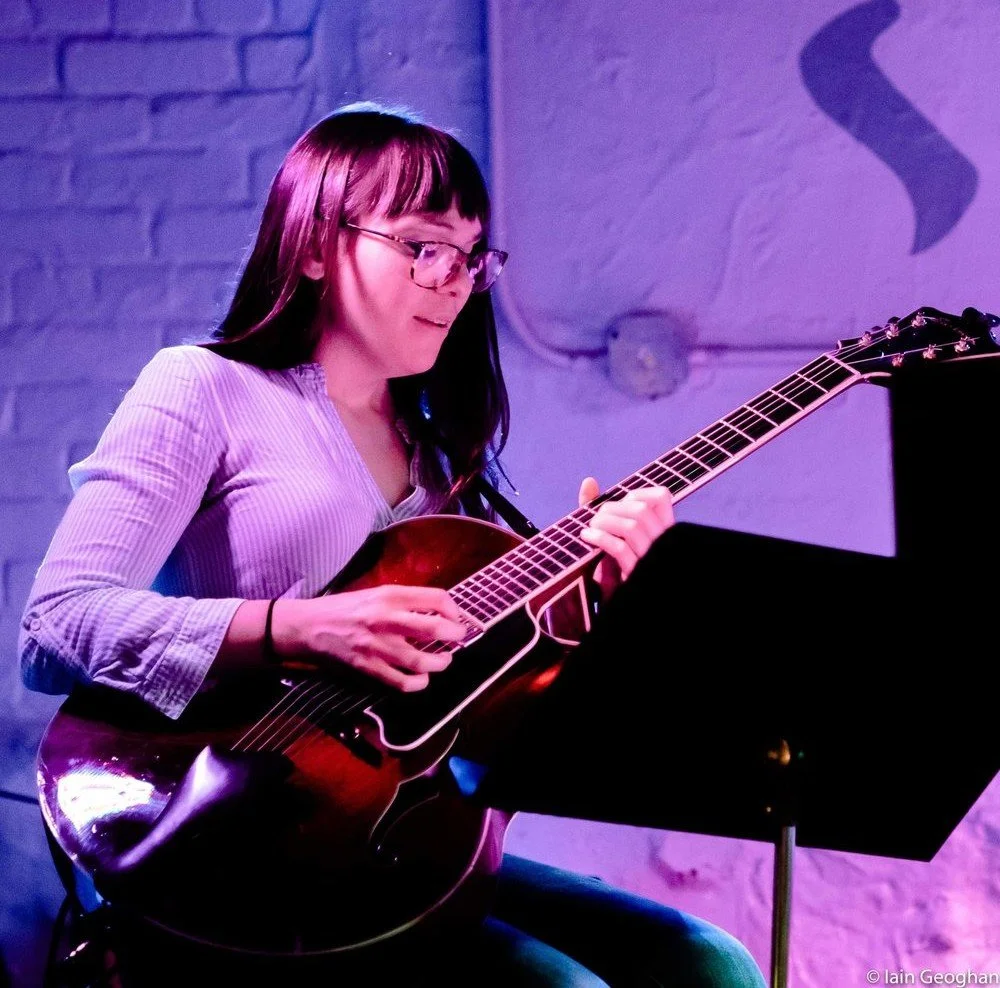Opera review: Taut chamber opera Into the Little Hill is a haunting parable
With expressive dance, eerie orchestrations, and stylized design, Astrolabe Musik Theatre performs an unsettling spin on the Pied Piper tale
Into the Little Hill. Photo by Flick Harrison
Astrolabe Musik Theatre’s Into the Little Hill continues at the Fei and Milton Wong Experimental Theatre at SFU Goldcorp Centre for the Arts on May 20
IT’S AROUND THE TIME a scared child observes “but that one’s wearing a coat/that one’s carrying a suitcase” that George Benjamin’s taut chamber opera Into the Little Hill takes a startlingly dark turn.
What has begun as a heightened retelling of the Pied Piper tale—and a town’s rat problem—has morphed into something much more sinister. These are not rodents that the crowd has been after. They are the marginalized “other”—bringing to mind instant connections to the Holocaust; Ukrainian families rushing by train and foot toward the Polish border; and the growing tide of migrants held at the U.S. border.
Making its Canadian debut with Vancouver’s Astrolabe Musik Theatre, the British composer’s 2006 opera gets seriously under your skin.
That’s in large part because of the eerie orchestrations and vocal parts. The mood is set from the shrieking first lines: “Kill them/they bite”, set against stabbing strings. It’s sung by soprano Heather Pawsey and mezzo Emma Parkinson, narrators who play all the parts here—a frenetic crowd, a malevolent “Minister” politician, a stranger without ears, eyes, or nose; a mother and child. The singing—with its complex rhythms, frantic high notes, and sinister lows—is punishing, but Pawsey and Parkinson pull it off with confidence and charisma.
Adding to the atmosphere is Benjamin’s unusual orchestration. The setup in the Fei and Milton Wong Experimental Theatre puts the orchestra in front of the action, under the baton of Leslie Dala; this allows your eyes to sometimes search for the instruments making unearthly sounds—be it Paolo Bortolussi’s bass flute, Saini Khaledi’s santour, Edward Henderson’s banjo, or percussionist Martin Fisk’s whip.
The unsettling effect is also due to the brilliantly sparse storytelling by its librettist, acclaimed British playwright Martin Crimp, who pares the narrative back to the bone. “How long will they grip and cling?” asks the horrified child. And listen to the way “Rats. Feeding. On… Electricity” is syncopated for emphasis. There are moments when the doublespeak seems directly inspired by False News times, even though this almost-hourlong work was written well before Trump or Putin’s reign of lies. At one point, the Minister insists “They chose to leave by their own free will.”
Director Idan Cohen gives all of this a dreamlike look, with touches of the Weimar Era, care of makeup artist Jess Hawkins’s white pancake makeup, and exaggerated eyelashes and blush, not to mention Victoria Bell’s sepia, cabaret-tinged side lights and Expressionist slices of illumination. Costume designer Elena Razlog fashions retro fedoras, ties, and suits, and makes an inspired splash with hooded robes, covered in images of faces, to conjure the crowd when Pawsey and Parkinson wear them.
As for the dance, choreographed with Israel-trained Cohen’s usual sophistication, it’s thankfully never a literal elaboration on the parable, but a sort of extension of the emotion and themes. The movement (performed by Juolin Lee, Daria Mikhaylyuk, and Hana Rutka) often fractures out behind or around the singers as they express ideas. There is some beautiful, sorrowful tangling choreography as the Stranger abducts the town’s children “into the little hill” in the climax.
In a clever touch, the program opens with Bortolussi performing Benjamin’s playfully fluttering and eerily keening flute solo Flight—conjuring the Pied Piper.
Credit is due to Pawsey and her indie Astrolabe for working 10 years to bring this small, dark little discovery to artful fruition. It feels avant garde, but the music is never impenetrable or atonal. To the contrary, this haunting parable is, sadly, all too familiar.


